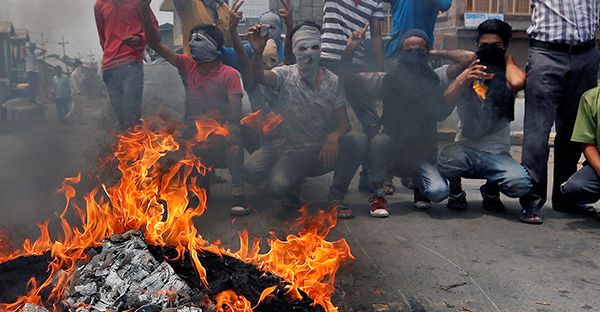Between 2015 and 2018, 11,995 farmers killed themselves; figure was 6,268 in 2011-2014, according to RTI data.
Farmer suicides in Maharashtra have almost doubled under the current BJP-led government’s watch, compared to the previous Congress-NCP regime, according to data received under the Right to Information Act.
Between 2015 and 2018, 11,995 farmers killed themselves; the figure was 6,268 in the 2011-’14 period, the data show.
Agriculture experts and activists on Monday said the government’s policies and loan waivers have failed to improve the situation. Chief Minister Devendra Fadnavis, however, said suicide cases, especially from Marathwada, were not properly reported under the Congress-led government.
Activist Jeetendra Ghadge had sought the data from the revenue department. “From January 1, 2015, to December 31, 2018, 11,995 farmers committed suicide in the state,” it replied, giving month-wise and division-wise figures.
“The prominent reasons noted for farmer suicides in the state of Maharashtra are debt, crop failure, inability to repay debt resulting in pressure from debtors, inability to procure enough money for daughter’s marriage or other religious activities, chronic severe illness, vices like alcohol addiction, gambling etc,” the reply said.
“Promises made by the government, including implementation of a life insurance scheme, were never kept,” Ghadge said on Monday. “The loan waiver did not change the plight of the farmers. Even claims by the victims’ families for compensation are largely rejected. Among the farmers, anger and frustration is high, as these superficial efforts are doing no good to them.”
Fadnavis did not contest the validity of the figures, but told the Mirror: “From 2011 to 2014, Marathwada figures were suppressed. They were not properly reported. Total suicides and those reported as farmer suicides (those verified by the government) also vary a lot.”
Loan waivers offer only temporary solutions, agricultural expert Dr Venkat Mayande said, adding that in the long term, crops should get better market value.
“An environment should be created that would allow the farmer to repay the loan and not fall into the debt trap. However, by giving a loan waiver, instead of farmers, the banks benefit more,” Mayande, a former vice-chancellor of the Dr Panjabrao Deshmukh Krishi Vidyapeeth, in Akola, said.
Satyashodhak Kashtakari Shetkari Sabha member Kishor Dhamale said the loan waiver programme was not even implemented properly.
“Many farmers were excluded from the process of loan waiver,” he said. “The waiver was declared late, no timely drought measures were taken. Many provisions in the new drought manual do not favour the families of those whose names have been added to the suicide list.”
The politics around cow slaughter and the fear it has generated have also affected the rural economy, Dhamale said. “The old cattle have become a financial burden on the farmer, forcing him to take the extreme step of ending his life.”











 Or you can stay and see that India is quite a non-harmonious society which needs change.
Or you can stay and see that India is quite a non-harmonious society which needs change.


